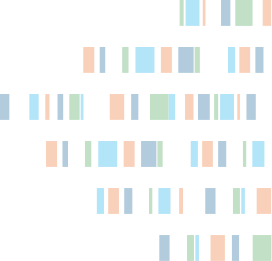Duckweeds represent a small, free-floating aquatic family (Lemnaceae) of the monocot order Alismatales with the fastest growth rate among flowering plants. They comprise five genera (Spirodela, Landoltia, Lemna, Wolffiella, and Wolffia) varying in genome size and chromosome number. Spirodela polyrhiza had the first sequenced duckweed genome. Cytogenetic maps are available for both species of the genus Spirodela (S. polyrhiza and S. intermedia). However, elucidation of chromosome homeology and evolutionary chromosome rearrangements by cross-FISH using Spirodela BAC probes to species of other duckweed genera has not been successful so far. We investigated the potential of chromosome-specific oligo-FISH probes to address these topics. We designed oligo-FISH probes specific for one S. intermedia and one S. polyrhiza chromosome (Fig. 1a). Our results show that these oligo-probes cross-hybridize with the homeologous regions of the other congeneric species, but are not suitable to uncover chromosomal homeology across duckweeds genera. This is most likely due to too low sequence similarity between the investigated genera and/or too low probe density on the target genomes. Finally, we suggest genus-specific design of oligo-probes to elucidate chromosome evolution across duckweed genera.

Home » Limitation of current probe design for oligo-cross-FISH, exemplified by chromosome evolution studies in duckweeds
Publications
Limitation of current probe design for oligo-cross-FISH, exemplified by chromosome evolution studies in duckweeds
myTags
Daicel Arbor Biosciences
5840 Interface Dr. Suite 101,
Ann Arbor, MI 48103
1.734.998.0751Ann Arbor, MI 48103
©2024 Biodiscovery LLC
(d/b/a Daicel Arbor Biosciences)
All Rights Reserved.
(d/b/a Daicel Arbor Biosciences)
All Rights Reserved.
Design and development by Raincastle Communications.
